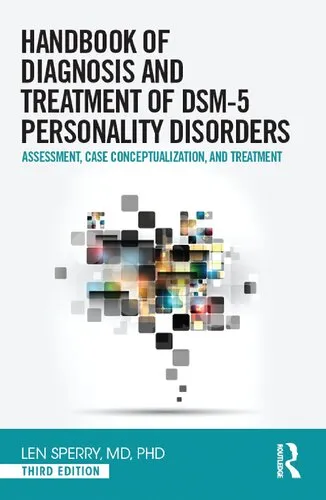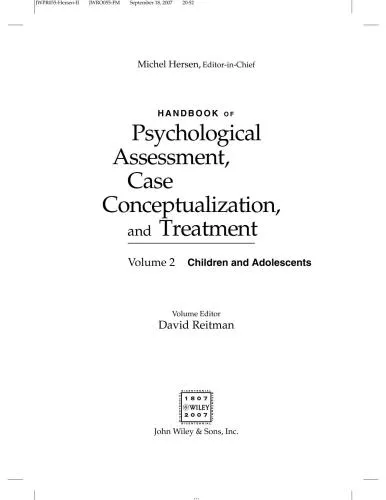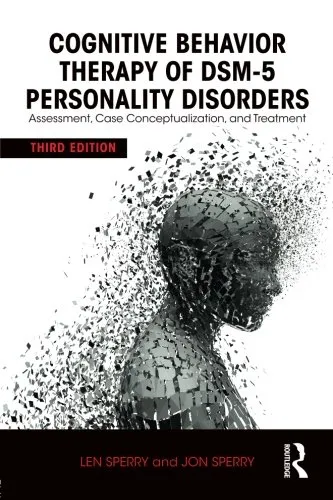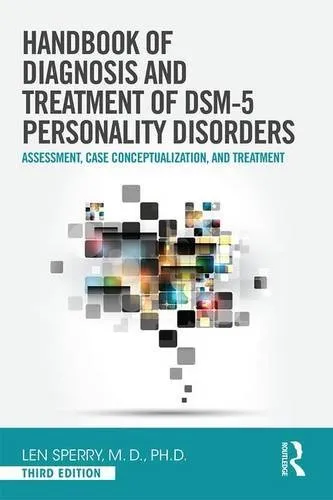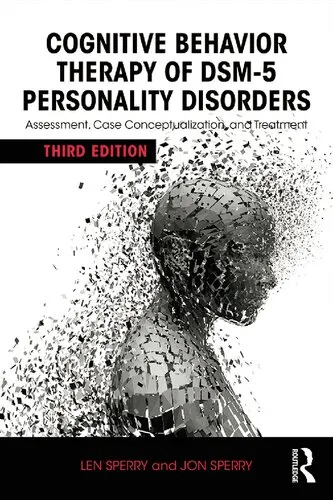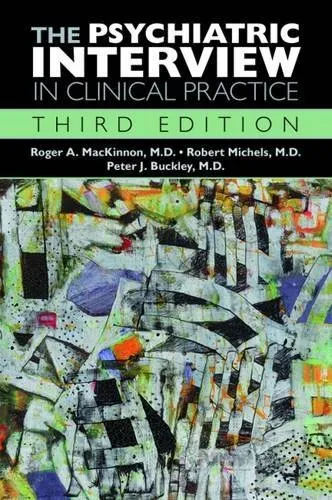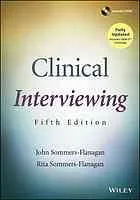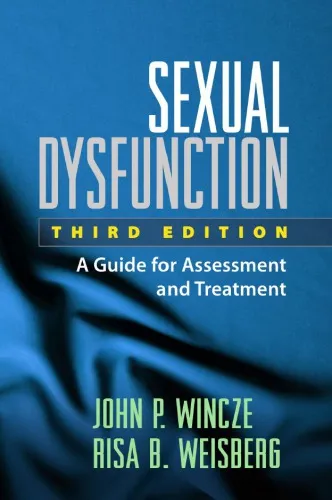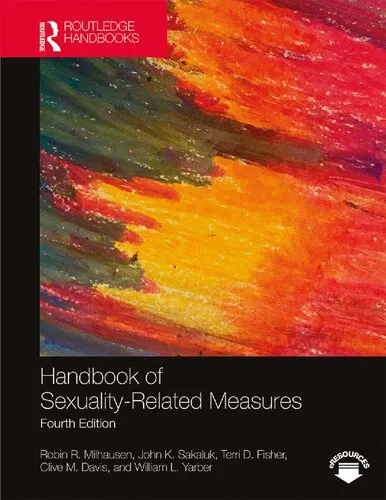Handbook of Diagnosis and Treatment of DSM-5 Personality Disorders: Assessment, Case Conceptualization, and Treatment, Third Edition
4.5
بر اساس نظر کاربران

شما میتونید سوالاتتون در باره کتاب رو از هوش مصنوعیش بعد از ورود بپرسید
هر دانلود یا پرسش از هوش مصنوعی 2 امتیاز لازم دارد، برای بدست آوردن امتیاز رایگان، به صفحه ی راهنمای امتیازات سر بزنید و یک سری کار ارزشمند انجام بدینکتاب های مرتبط:
معرفی کتاب "Handbook of Diagnosis and Treatment of DSM-5 Personality Disorders"
کتاب "Handbook of Diagnosis and Treatment of DSM-5 Personality Disorders: Assessment, Case Conceptualization, and Treatment, Third Edition" یکی از منابع کاربردی و جامع در حوزه روانشناسی بالینی است. این کتاب توسط نویسنده و روانشناس مجرب، لن اسپرری نوشته شده و بهطور خاص به شناسایی، مفهومسازی موارد بالینی و درمان اختلالات شخصیت بر اساس دستورالعملهای DSM-5 میپردازد. نسخه سوم این کتاب با اطلاعات بهروزشده و تکنیکهای درمانی مؤثر طراحی شده است تا نیازهای متخصصین در زمینه رواندرمانی و تشخیص اختلالات شخصیت را برآورده کند.
خلاصهای از کتاب
کتاب شامل یک ساختار مشخص و هدفمند است که روانشناسان، مشاوران و متخصصین سلامت روان را برای تشخیص و درمان دقیقتر اختلالات شخصیت مبتنی بر DSM-5 آماده میکند. این اثر با تمرکز ویژه روی تشخیص دقیق و طراحی برنامههای درمانی کاربردی، ابزارهای عملی را برای بهبود ارتباط با مراجعین و ارتقاء نتایج درمانی فراهم میکند. نویسنده در ابتدا اصول ارزیابی و شناسایی اختلالات شخصیت را توضیح میدهد و سپس به مفهومسازی موارد بالینی از منظر روانشناختی پرداخته و در نهایت، مداخلههای درمانی مؤثر را ارائه میدهد.
تاکید اصلی کتاب بر پیادهسازی مدلهای درمانی مختلف از جمله Cognitive Behavioral Therapy (CBT)، Dialectical Behavior Therapy (DBT)، Psychodynamic Therapy و سایر رویکردهای یکپارچه است. این کتاب همچنین به ابعاد بینفردی و تأثیرگذاری محیطی اختلالات شخصیت نیز میپردازد و خوانندگان را با چالشهای واقعی متخصصین بالینی در این زمینه آشنا میکند.
نکات کلیدی کتاب
- راهنمای گامبهگام در تشخیص و درمان اختلالات شخصیت بر اساس DSM-5.
- توضیحی جامع درباره مفهومسازی موارد بالینی بر اساس دادههای روانشناختی.
- بررسی دقیق مدلهای کاربردی درمان از جمله CBT و DBT.
- فراهم آوردن ابزارها و تکنیکهای درمانی برای بهبود کیفیت درمان.
- جزئیات درباره تأثیرات بینفردی و محیطی بر اختلالات شخصیت.
جملات معروف از کتاب
"Understanding personality disorders is not about labeling people; it's about improving lives through effective care."
"Effective case conceptualization is the cornerstone of successful treatment."
"Treatment is most effective when it is tailored to the complexities of each individual."
چرا این کتاب مهم است؟
این کتاب ابزاری حیاتی برای روانشناسان، روانپزشکان و سایر متخصصین سلامت روان است. با پیشرفت علم روانشناسی بالینی و بهروزرسانیهای DSM-5، نیاز به منابع دقیق و جامع برای مدیریت چالشهای اختلالات شخصیت بیش از پیش احساس میشود. "Handbook of Diagnosis and Treatment of DSM-5 Personality Disorders" با ارائه راهکارهای علمی، ساختارمند و عملی برای تشخیص و درمان، نه تنها به متخصصین کمک میکند، بلکه مسیری روشن برای بهبود زندگی مراجعین فراهم میسازد.
این کتاب با ترکیب نظریههای علمی و دانش عملی، نقش مؤثری در بهبود مهارتهای درمانگر و ارتقای کیفیت خدمات درمانی دارد. همچنین توجه به جنبههای انسانی و فردی تعامل درمانگر و بیمار، به جای رویکردهای صرفاً مکانیکی، از ویژگیهای برجسته این اثر است.
Introduction
Welcome to the Handbook of Diagnosis and Treatment of DSM-5 Personality Disorders: Assessment, Case Conceptualization, and Treatment, Third Edition. This book provides clinicians, mental health professionals, and students with a comprehensive, evidence-based guide to understanding, diagnosing, and treating personality disorders using the DSM-5 framework. It brings clarity and depth to one of the most complex areas of mental health practice by integrating theory, research, and practical strategies for assessment and intervention. With its systematic approach, this handbook bridges the gap between theoretical constructs and actionable clinical guidance, making it an essential resource for practitioners and scholars alike.
Detailed Summary of the Book
The third edition of this handbook delves deeply into the myriad forms of personality disorders as defined by the DSM-5, offering comprehensive insights into their diagnosis, conceptualization, and treatment. It begins by outlining the theoretical foundations of personality disorders, setting the context for their understanding within psychiatric nomenclature. The book then explores each of the DSM-5 personality disorders in detail, presenting their diagnostic criteria, hallmark characteristics, and differential diagnoses.
In addition to covering individual disorders, the book takes a broader perspective by discussing the dimensional model of personality pathology and its implications for treatment. A unique feature of this handbook is its emphasis on case conceptualization—a core skill for any clinician aiming to craft effective therapeutic interventions. By weaving together biopsychosocial principles and real-world examples, the text guides readers on how to formulate nuanced clinical pictures of their patients.
Importantly, the book addresses state-of-the-art treatment approaches, including evidence-based strategies tailored to individual personality disorders. Psychotherapies such as cognitive-behavioral therapy (CBT), dialectical behavior therapy (DBT), schema therapy, and psychodynamic therapy are explored comprehensively. The integration of these therapeutic modalities equips clinicians with a robust toolkit for managing complex cases effectively.
This edition also includes updates informed by the latest clinical research and DSM-5 revisions, making it a vital resource for contemporary clinical practice. Whether you are a seasoned practitioner or a student entering the field, this handbook provides the foundational knowledge and applied skills necessary for working with individuals experiencing personality pathology.
Key Takeaways
- A structured and comprehensive guide to DSM-5 personality disorders, including diagnosis, assessment, and treatment.
- Detailed explanations of therapeutic approaches like CBT, DBT, and schema therapy, with practical applications.
- Insights into case conceptualization, helping clinicians understand the unique dynamics and challenges of each patient.
- Discussion of the dimensional model of personality disorders, adding depth to the categorical DSM framework.
- Real-world examples and clinical cases to illustrate complex concepts and techniques.
- A focus on the integration of evidence-based practices for improved clinical outcomes.
Famous Quotes from the Book
"Personality disorders are not merely clusters of symptoms; they represent deeply ingrained patterns of behavior and thought that challenge both the individual and those around them."
"Effective treatment of personality disorders begins with a thorough understanding of the individual—this requires skill, patience, and a commitment to the therapeutic process."
"Case conceptualization is the cornerstone of successful therapy; it aligns diagnostic understanding with tailored treatment strategies."
Why This Book Matters
The Handbook of Diagnosis and Treatment of DSM-5 Personality Disorders is not just another academic resource—it is a cornerstone of effective, informed mental health practice. Personality disorders are notoriously complex both to diagnose and treat, often requiring a sophisticated understanding of individual differences, co-occurring conditions, and the interplay between biological, psychological, and social factors. This handbook demystifies these complexities, offering clarity and actionable insights for clinicians.
Moreover, the book bridges theory and practice. It provides the theoretical depth necessary to appreciate the nuances of these disorders while also equipping practitioners with tools and strategies they can immediately apply in real-world clinical settings. From sharpening diagnostic accuracy to designing personalized treatment plans, this handbook empowers professionals to make a meaningful difference in their patients' lives.
Finally, this edition incorporates the latest advancements in clinical psychology and psychiatry, ensuring that its contents are not only relevant but also aligned with the most current research and guidelines. It underscores the importance of lifelong learning and adaptation in an ever-evolving field, making it an indispensable resource for both new and experienced clinicians. By offering a practical yet thorough approach to understanding and managing personality disorders, this book builds a strong foundation for transformative therapeutic outcomes.
دانلود رایگان مستقیم
شما میتونید سوالاتتون در باره کتاب رو از هوش مصنوعیش بعد از ورود بپرسید
دسترسی به کتابها از طریق پلتفرمهای قانونی و کتابخانههای عمومی نه تنها از حقوق نویسندگان و ناشران حمایت میکند، بلکه به پایداری فرهنگ کتابخوانی نیز کمک میرساند. پیش از دانلود، لحظهای به بررسی این گزینهها فکر کنید.
این کتاب رو در پلتفرم های دیگه ببینید
WorldCat به شما کمک میکنه تا کتاب ها رو در کتابخانه های سراسر دنیا پیدا کنید
امتیازها، نظرات تخصصی و صحبت ها درباره کتاب را در Goodreads ببینید
کتابهای کمیاب یا دست دوم را در AbeBooks پیدا کنید و بخرید
1603
بازدید4.5
امتیاز0
نظر98%
رضایتنظرات:
4.5
بر اساس 0 نظر کاربران
Questions & Answers
Ask questions about this book or help others by answering
No questions yet. Be the first to ask!
